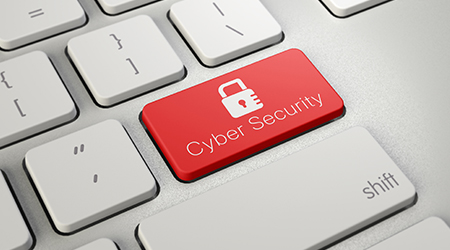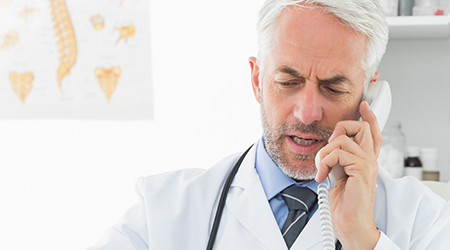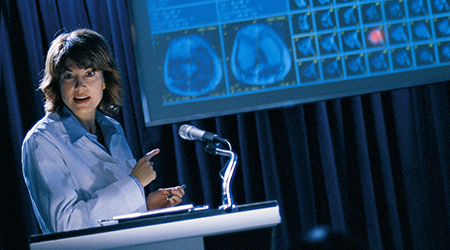
Immunity for Healthcare Providers During COVID-19 Pandemic
During this time of uncertainty, Medical Mutual continues to provide
information to our Insureds regarding topics that may affect them as they
navigate this national emergency. One of those subjects has to do with
immunity from civil liability for health care providers in Maryland,
Virginia, and D.C.
FEDERAL SUMMARY
- Federal – The CARES Act (Section 3215)
Section 3215 of the CARES Act provides immunity to health care professionals who provide voluntary health care in relation to the COVID-19 crisis. Health care covered under this section includes (1) the diagnosis of COVID-19, (2) the prevention of COVID-19, (3) the treatment of COVID-19, (4) the assessment of the health of a human being related to an actual or suspected case of COVID-19, and (5) the care of the health of a human being related to an actual or suspected case of COVID-19.
Importantly, this immunity only applies if the health care provider is providing care within the scope of the health care provider’s license, and the health care provider is acting in good faith. Immunity will not apply if (1) a health care provider caused harm by an act that is “willful or criminal misconduct, gross negligence, reckless misconduct, or a conscious flagrant indifference to the rights or safety of the individual[;]” (2) a health care provider is under the influence; or (3) a health care provider accepts payment for services rendered to an individual. Lastly, this immunity provision only provides immunity for actions from March 27, 2020, to the end of the duration of the declared federal public health emergency.
MARYLAND SUMMARY
- Maryland – Good Samaritan Law (Maryland Code, § 5-603 of the Courts and Judicial Proceedings Article)
According to the language of this act, immunity under this statute is only available to those individuals who provide assistance or medical care “without fee or other compensation.” The statute does not provide immunity to those individuals who provide assistance or medical care and receive a fee or other compensation for that assistance or medical care.
If you find yourself in the role of a Good Samaritan during this time of crisis and you are not accepting a fee or other compensation, then the act may apply to you. Additionally, the immunity granted is qualified by providing that the acts are given “in a reasonably prudent manner,” and the rendering of medical care or assistance must not be “grossly negligent.” Maryland courts have held that as this is a qualified immunity, the determination of whether the immunity applies will be determined by the trier of fact. Artis v. Cyphers, 100 Md. App. 633, 642 A. 2d 298, aff’d, 336 Md. 561, 649 A.2d 828 (1994).
- Maryland – Public Safety Immunity Act (Maryland Code, § 14-3A-01(b) of the Public Safety Article)
This statute provides a health care provider with immunity from civil liability if that health care provider acts with “good faith” and under “a catastrophic health emergency proclamation.” Maryland Governor Hogan issued such a proclamation pursuant to Maryland Code, § 14-3A-01(b) of the Public Safety Article on March 5, 2020, and renewed the proclamation on May 6, 2020. To fall under the immunity protection of this Act, certain conditions apply:
i. If you are providing normal/routine care for a non-COVID-19 patient, then the immunity of this Act would not apply because that care has no relation to the “catastrophic health emergency proclamation” of Governor Hogan. Accordingly, if a patient had COVID-19, but was being treated for a non-COVID-19 condition, this immunity also may not apply.
ii. The immunity would apply if a health care provider strictly follows Maryland orders, any Department of Health orders, or any other Maryland established orders. If orders are broad or defer to a health care provider’s professional judgment, a trier of fact maybe called upon to determine whether a health care provider was acting in good faith in the time of the emergency.
- Maryland – Proclamation of Renewal of Declaration of State of Emergency and Existence of Catastrophic Health Emergency – COVID-19 & Maryland Department of Health’s Amended Directive and Order Regarding Various Healthcare Matters
On May 6, 2020, Governor Hogan issued Proclamation of Renewal of Declaration of State of Emergency and Existence of Catastrophic Health Emergency (“Proclamation”). In this Proclamation, Governor Hogan clarified that the Public Safety Immunity Act, Maryland Code, § 14-3A-01(b) of the Public Safety Article, confers health care providers with immunity when following state orders concerning COVID-19. Specifically, the Proclamation provides:
Health care providers who act in good faith under this catastrophic health emergency proclamation, including orders issued under the proclamation by the Governor and by other State officials acting at the direction of or under delegated authority from the Governor, have the immunity provided by § 14-3A-06 of the Public Safety Article of the Maryland Code.
Also on May 6, 2020, the Maryland Department of Health issued Amended Directive and Order Regarding Various Healthcare Matters (“Directive and Order”). The Directive and Order opines that the Maryland Department of Health “does not construe the immunity provisions in Pub. Safety Art. § 14-3A-06 or Health Gen. Art. § 18-907 to apply to a healthcare provider or facility performing non-COVID-19 related procedures or appointments.”
VIRGINIA SUMMARY
- Virginia – Good Samaritan Law (Virginia Code § 8.01-225)
Similar to Maryland’s Good Samaritan Law, immunity under this statute is only available to those individuals who act in good faith and provide assistance or medical care in an emergency “without fee or other compensation.” The statute does not provide immunity to those individuals who provide assistance or medical care and receive a fee or other compensation for that assistance or medical care. If you find yourself in the role of a Good Samaritan during this time of crisis and you are not accepting a fee or other compensation, then this law may apply to you.
- Virginia – Certain Immunity for Health Care Providers During Disasters Under Specific Circumstances (Virginia Code § 8.01-225.01)
On March 12, 2020, Virginia Governor Northam issued a Declaration of a State of Emergency Due to Novel Coronavirus stating the COVID-19 is a disaster within the meaning of Virginia Code § 44-146.16. This declaration triggers the immunity provision in Virginia Code § 8.01-225.01, and provides a health care provider with immunity from civil liability if that health care provider acts “in the absence of gross negligence or willful misconduct” in a disaster. Specifically, Virginia Code § 8.01-225.01 confers immunity for a health care provider that is unable to provide the requisite health care to a patient because the health care provider must voluntarily or mandatorily abandon his or her practice to respond to a disaster, such as COVID-19.
It is important to understand that this statute only provides immunity for
health care providers that are actively
responding to a disaster and, therefore, are unable to meet their normal
duty to their patients. Health care providers who are not actively
responding to a disaster must continue to make themselves available to
their patients via physical or electronic means. A claim of immunity under
this statute would likely be determined by a trier of fact.
- Virginia – Certain Immunity for Health Care Providers During Disasters (Virginia Code § 8.01-225.02)
Virginia Governor Northam’s Declaration of a State of Emergency Due to Novel Coronavirus also triggers the immunity provision in Virginia Code § 8.01-225.02. Virginia Code § 8.01-225.02 provides immunity to a health care provider from liability resulting from the delivery or withholding of health care if the emergency and subsequent conditions cause a lack of resources which renders the requisite level or manner of care previously established impossible. For this immunity to apply, a health care provider must not have acted with gross negligence or willful misconduct.
Immunity will not apply if a health care provider is able to care for a patient without the need for resources that are unavailable during a disaster. Similar to the immunity conferred in Virginia Code § 8.01-225.01, a claim of immunity under this statute would likely be determined by a trier of fact.
- Virginia – Executive Order 60 – Clarification of Certain Immunity from Liability for Healthcare Providers in Response to Novel Coronavirus (COVID-19).
On April 28, 2020, Governor Northam issued Executive Order 60. In this Order, Governor Northam clarified that COVID-19 is a disaster within the meaning of Virginia Code § 44-146.16 and triggers the immunity provisions in Virginia Code § 8.01-225.01 and Virginia Code § 8.01-225.02. Accordingly, immunity applies to physicians responding to the COVID-19 disaster as long as there is an absence of gross negligence or willful misconduct.
Specifically, immunity applies to actions including, but not limited to, the “temporary withholding of the provision of procedures, consultations or surgeries performed in an inpatient or outpatient surgical hospital licensed under 12 Va. Admin. Code § 5-410, free-standing emergency department or endoscopy center, physicians’ office, or dental, orthodontic, oral surgeon, or endodontic offices that require PPE, the delay of which was not anticipated to cause harm to the patient by negatively affecting the patient’s health outcomes, or leading to disability or death.”
Additionally, the requirement in Virginia Code § 8.01-225.02 that provides immunity when there is an “emergency and subsequent conditions [that] cause[] a lack of resources, attributable to the disaster, rendering the health care provider unable to provide the level or manner of care that otherwise would have been required in the absence of the emergency” is interpreted to “include[,] but is not limited to: (i) insufficient availability of PPE, ventilators, or other drugs, blood products, supplies or equipment; (ii) insufficient availability of trained staff; (iii) having licensed healthcare professionals deliver care that, while included in the scope of their licensure, exceeds the scope of their credentials at the hospital or other health care facility at which they deliver services or exceeds the scope of the services that they normally provide; (iv) implementation or execution of triage protocols or scarce resource allocation policies necessitated by healthcare provider declaration of crisis standards of care; and (v) using supplies or equipment in innovative ways that are different from the way that these supplies and equipment are normally used.”
DISTRICT OF COLUMBIA SUMMARY
- District of Columbia – Good Samaritan Law (D.C. Code § 7-401)
Similar to Maryland and Virginia’s Good Samaritan Law, immunity under this statute is only available to those individuals who act in good faith and provide assistance or medical care in an emergency “without the expectation of receiving or intending to seek compensation from such injured person.” This immunity only applies if the care is given without “gross negligence” and must be provided outside of a hospital setting.
Additionally, immunity is provided to a licensed physician “who in good faith gives emergency medical instructions either directly or via telecommunication to a certified emergency medical technician/paramedic or emergency medical technician/intermediate paramedic for the purpose of providing advanced emergency medical care to an injured person.” The instructions must be provided at the scene of the accident or other emergency, or in transit from the accident or emergency to the hospital. This immunity does not have the requirement that the physician not have “an expectation of receiving or intending to seek compensation from such injured person.” Moreover, this immunity only applies if the instructions given are without “gross negligence.”
This is provided for general information purposes only and is not intended to be legal advice. Please contact your attorney for additional information on this subject matter.





